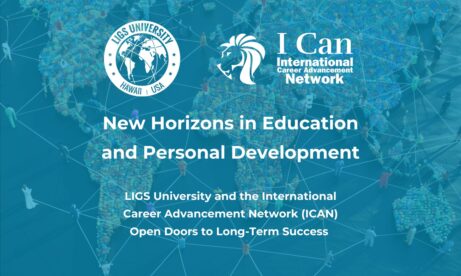
PhD graduate Amr Sukkar talks about his new book
We recently had a chat with our PhD graduate Amr Sukkar from Egypt, who wrote a book titled Leadership in a Green Business Era. Naturally, we are very proud of Amr and his achievement, so we wanted to hear more about it!
Hello Amr, you recently wrote a book titled “Leadership in a Green Business Era”. Could you tell us what made you write this book?
I believe in all win concepts – 3P (People, Planet and Profit, or as we can call it: Society, Environment and Economy) to sustain our lives and our businesses. The problem is the process of implementing sustainability within national or international corporate functions. The main challenge is that any sustainable strategy must have the right leader, CEO and senior management.
Do you think you perceive this issue differently from the other researchers?
In developed countries, the majority of SME leaders/owners believe that the principles of environmental sustainability added nothing but cost to their businesses. According to the literature, there is an increasing agreement that businesses need to embrace environmental sustainability, while recent research on leading sustainable development in the management field still provides only limited guidance on how this should be done.
In addition, in developed countries, people tend to depend on advice and instructions from authority figures (Shahin & Wrigth, 2004) and are used to high degree of power distance where power is distributed unequally (Hofstede, 1993). This implies that changes would stem from the higher levels of a company – that is, from its leaders.
Leaders with a high awareness of the PPP (People, Planet and Profits) would make business and environmental sustainability a priority in the business sector. This would have a positive impact on society and economic growth. But it is not happening.
Thus, this research book attempts to fill part of the gap in knowledge of the attributes of the few SME leaders who are promoting environmental sustainability, particularly in the developed countries (middle east) context.
Who is this book meant for? Do you think this topic is meant even for those who are not otherwise familiar with it?
I would say that this book is meant for various groups of people. For instance, researchers in leadership, management and sustainable development areas. Additionally, I would mention governments and NGOs that are interested in developing the skills of SMEs leaders in their countries and push them to environmental sustainable approach in their business activities. Last but not least, universities developing leadership educational program may also benefit from this book.
Do you plan on releasing your book as a physical copy, or e-version only?
I hope to find a good international publisher that can help me with that, yes.
Is this your first book? Do you plan on writing more?
No, It’s my fourth book but the first one written in English. Yes, I am starting another project now, which will be focused on Entrepreneurship in a pharmaceutical industry.
Would you say publishing books and articles help advance your career? Or would you perhaps say it is better for academics?
For me, it’s one of my communication channels with others. My mission is to spread positive energy and knowledge with others, thus I am working with different channels like teaching, online teaching, my you tube channel, writing articles, radio programs and writing books. I believe that before I leave this life, I should leave some new knowledge to humanity and charitable projects for poor people. This is the sustainability form my point of view.
Amr, you are a person who likes continuous personal development. Why would you say it is so important for your happiness?
In my point of view, change is the only constant in our lives, thus I should change myself before I will be changed. Personal development leads to personal growth, satisfaction through meaningful work in simple terms. Definition of happiness changes with time, with circumstances and many other contributing factors. Thus, personal development and growth will be very important to fit with new circumstances and factors.
For example: the factor of happiness when we were young was a new toy. We are grown up now and buying, for instance, a new car is the key factor of happiness. However, we can’t feel happiness unless we learn how to drive!
Read more about Amr Sukkar HERE.



